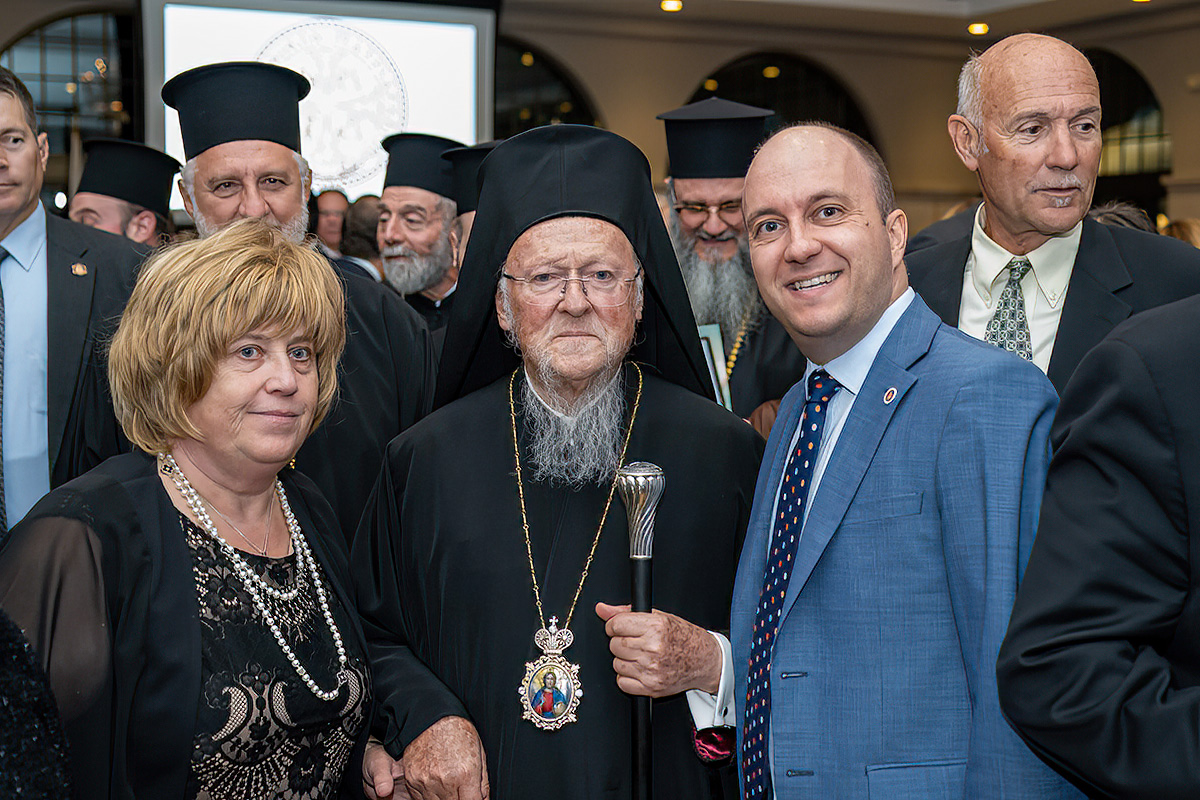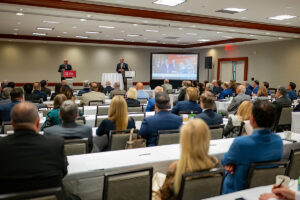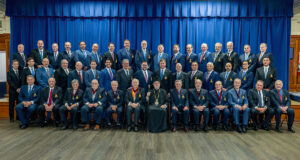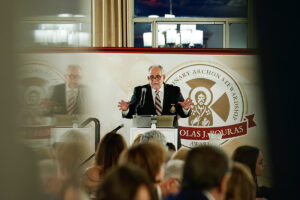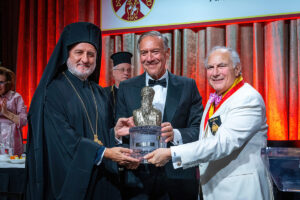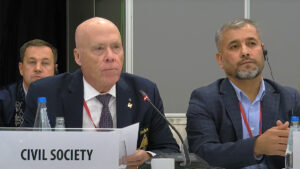By Evagelos Sotiropoulos, as an individual
“Kirill of Moscow.”
These three words encapsulate the genuine character and inner spirituality of His All-Holiness Ecumenical Patriarch Bartholomew.
Many contemporary so-called leaders are exemplary for cleansing the outside of their cup while inwardly being “full of extortion and self-indulgence” (Mt 23:25). The politician who purports to be for the people but personally profits off their own actions; the business person who cares more about their share price than the well-being of employees; the social media influencer who gaslights their audience to monetize division and hatred; and, yes, religious stewards who pay lip-service to “Holy Tradition” or to the “Holy Canons” but actively disregard them in practice.
In a society thirsty for authenticity, self-sacrifice, and following the words of St. Paul, someone who not only looks after their own interests, “but also for the interests of others” (Php 2:4), the world is fortunate to have the person of Ecumenical Patriarch Bartholomew.
Allow me to elaborate.
During his recently concluded Apostolic Visit to the United States, Ecumenical Patriarch Bartholomew presided over a Synodal Divine Liturgy at the now Cathedral of the Dormition of the Virgin Mary in Southampton, New York.
I had the great fortune to be at the parish community, one whose grounds are impeccably manicured, whose iconography and mosaics transport you to heaven, and whose entire amenities offer thanksgiving for and to the glory of God.
The Cathedral is led by the now Megas Protopresbyter Alexander Karloutsos, affectionately known to all as Fr. Alex. It was he, together with a Patriarchal Deacon, who circled the Church with the Holy Gifts during the Great Entrance.
Following their reception by the Ecumenical Patriarch, the commemoration of the names of all Orthodox primates was performed – a unique occasion that occurs only when a leader of an autocephalous Church presides over the Divine Liturgy. At that moment, His All-Holiness included “Kirill of Moscow” in his prayerful offerings.
This is despite the Moscow Patriarchate ceasing communion with the Ecumenical Patriarchate following the canonical granting of autocephaly to the Orthodox Church in Ukraine in 2019.
This is despite the Moscow Patriarchate’s incursion into the canonical territories of multiple autocephalous churches.
This is despite the Moscow Patriarchate leveraging its financial force to influence Orthodox hierarchs – and even synods – in order to advance Russian interests often at the expense of Church unity.
This is despite the Moscow Patriarchate being banned or under investigation in multiple European countries – not just Ukraine, refer to legislative and/or other actions in Bulgaria, the Czech Republic, Estonia, and Lithuania, among others – because these governments want to remove Kremlin-directed clerical operatives from pushing Russian foreign policy objectives on their sovereign territories.
This is also despite the Moscow Patriarchate initially blessing and now providing ongoing “spiritual” support for the Kremlin’s unprovoked act of aggression against Ukraine, which has led to hundreds of thousands of deaths – may their memories be Eternal!
How does His All-Holiness respond to this?
With animosity or vengeance? With “an eye for an eye” retribution mentality? Certainly not!
Instead, he has approached the situation as a pastor and even more so, as a father. Indeed, for those who have followed his historic Patriarchal ministry – or for those who independently analyze it – his approach to challenges are always guided by a pastoral hand, and above all with agape.
While he has repeatedly deplored and censured the evil act of war, including the Moscow Patriarchate’s role in it, he has done so as a stern but loving father.
His continued inclusion of “Kirill of Moscow” in the diptychs is reminiscent of the father in the Parable of the Prodigal Son (cf. Lk 15:11-32): praying and patiently waiting for the return of his son to the father’s (God’s) house.
The father did not want the demise of his son, notwithstanding his poor and imprudent actions, but for him to return, like a true father does, like our Heavenly Father, in fact.
As Christians, is this who we are not meant to model our lives after, Our Lord Jesus Christ?
Our Lord who commanded us to love our neighbor as ourselves.
Our Lord who instructed us to not only love but feed our enemies.
Our Lord who forgave His crucifiers, an act of unimaginable and incomprehensible forgiveness and agape.
It is these virtues, this love, that characterize the Ecumenical Patriarch.
I witnessed it for the first time when I had the blessing to observe the Holy and Great Council during the week of Pentecost in 2016 on the island of Crete.
I saw it again firsthand when I visited the Phanar years later for the feast of the Holy Apostles Bartholomew and Barnabas and the celebration of the Ecumenical Patriarch’s Name Day.
It was evident during last year’s Thronal Feast of St. Andrew the First-called Apostle, for which I participated and wrote a personal reflection based on my experience in the Queen of Cities.
It was especially made manifest over the two-days at the Dormition Cathedral in Southampton.
His love for all – and the faithful’s love for him.
His openness to dialogue and to listen to the faithful – like a father does.
His patience and embrace for all around him – despite a demanding and relentless schedule of events that would render to the sidelines many half his age.
But it is this Christ-fueled love that propels the 85-year old “Apostle and Visionary” as he is aptly described in his biography by the distinguished Rev. Dr. John Chryssavgis.
It is his vision, his service to humanity, that is recognized the world over.
It was recognized in Washington where he met with the President and Vice President of the United States, and other top lawmakers on Capitol Hill.
It was recognized in New York where he met with the UN Secretary General and many international leaders.
It is recognized in countless national capitals, where heads of state and government welcome His All-Holiness with dignity and respect befitting the First Throne of Orthodoxy and the person of the Patriarch.
And it was recognized by the prestigious bestowing of the renowned Templeton Prize, together with its $1.4 million prize (which, not surprisingly, the Patriarch has pledged, in its entirety, for the construction of an old age home on his native island of Imbros).
Despite attempts to criticize and undermine the Patriarch – including his Apostolic Visit which by any objective measure was strategically organized and successfully executed – he perseveres.
Despite well orchestrated campaigns to undermine his reputation, the international prestige of the Ecumenical Patriarchate continues to climb.
Despite efforts to label the Patriarch with pejoratives, he remains unwavering in his embrace of all peoples, confidently speaking the truth in love (cf. Eph 4:15).
Despite the scheming of some to delegitimize the unique role of the Mother Church of Constantinople, including maneuvers of certain hierarchs to meet with foreign leaders, the Patriarch expertly preserves the canonical prerogatives granted to the Ecumenical Patriarchate by the Fathers of the Church and recognized throughout the centuries.
The Patriarch overcomes obstacles and challenges with love, the greatest virtue, which never fails (1Co 13:8). This love, in a spirit of unity, was abundant in Southampton – given to the Patriarch and bestowed upon the faithful by him.
This paternal love to and from all – including Kirill of Moscow – has and continues to distinguish the unprecedented Patriarchal ministry of His All-Holiness.
May God grant him many years rightly teaching the word of His truth!
